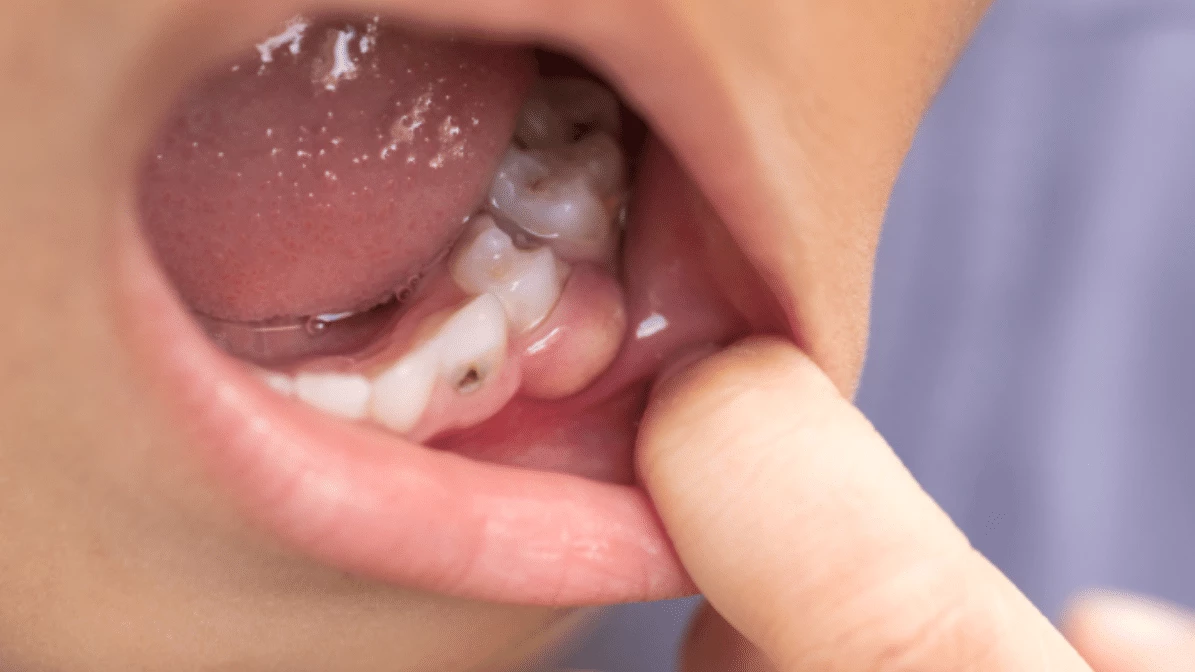Causes of Dental Infections
The primary cause of dental infections is bacteria that enter the tooth or gums, often due to:
- Poor dental hygiene leads to plaque buildup
- Untreated cavities that allow bacteria to reach the dental pulp
- Gum disease creates pockets where bacteria can thrive
Types of Dental Infections
Dental infections can manifest in several forms, including:
- Tooth Abscess: Infection in between the gum and tooth or on the root of the tooth.
- Gum Abscess: An infection in the space between the teeth and gums.
- Periodontal Infection: A more advanced infection affecting the gums and the structures supporting the teeth.
Symptoms of Dental Infections
Key symptoms to watch for include:
- Persistent or severe tooth, gum, or jaw pain
- Swelling or redness in the mouth or face
- Fever, fatigue, or general malaise
- A foul taste in the mouth or persistent bad breath
Complications of Untreated Dental Infections
Without timely treatment, dental infections can lead to:
- The spread of infection to the jaw, neck, or brain
- Raised danger of cardiovascular disease and stroke
- Potential complications during pregnancy
Prevention Strategies
Preventing dental infections involves:
- Having regular dental exams can help find and correct problems early on.
- Maintaining proper oral hygiene to reduce plaque and bacteria
- Adopting a healthy diet that’s low in sugar and acidic foods
Treatment Options
Treatment for dental infections may include:
- Antibiotics to fight the infection
- Drainage of the abscess to remove pus
- Root canal therapy to save the infected tooth
- Tooth extraction in cases where the tooth cannot be saved
When to See a Dentist
Knowing when to seek immediate dental attention can be pivotal in preventing more serious health complications associated with dental infections.
If you notice severe pain or swelling around your teeth or gums, it’s a clear indicator that something is amiss within your oral cavity. Such symptoms often suggest an infection that could rapidly progress without professional intervention.
Moreover, if dental issues escalate to systemic symptoms like fever, or if you experience difficulty breathing or swallowing, the situation may warrant emergency care. These signs can indicate that the infection has spread beyond the oral cavity, potentially posing a significant risk to your overall health.
In these instances, prompt action by seeing a dentist can be crucial in addressing the infection, alleviating pain, and averting more severe health consequences. Always err on the side of caution and consult with a dental professional immediately if you encounter these symptoms.
FAQs about Dental Infections
Q: How long does it take for a dental infection to develop?
A: The timeline for developing a dental infection depends on various factors, such as the individual’s oral hygiene and diet. It can range from a few days to several weeks.
Q: Can dental infections be contagious?
A: Yes, some types of dental infections can be contagious through saliva exchange, especially if there are open sores or wounds in the mouth.
Q: Is it possible to prevent dental infections?
A: Yes, maintaining good oral hygiene and regular dental check-ups can help prevent dental infections. Avoiding acidic foods and drinks and practicing proper brushing and flossing techniques can lower the risk of developing a dental infection.
Q: What is the best treatment for a dental infection?
A: The recommended treatment for a dental infection depends on the severity and location of the infection. In most cases, antibiotics are prescribed to clear the infection and prevent it from spreading. In some cases, a root canal or tooth extraction may be necessary.
Q: Can I still receive dental treatment if I have a dental infection?
A: In most cases, yes. Your dentist will assess the severity of the infection and may recommend postponing non-urgent procedures until it is fully treated. However, emergency or necessary treatments can still be performed while undergoing treatment for a dental infection to prevent further complications.
Q: Is it safe to leave a dental infection untreated?
A: No, consequences like sepsis, damage to neighboring teeth and tissues, and infection spreading to other areas of the body are real possibilities with untreated dental infections. Getting medical help right away is crucial if you think you have a tooth infection.
Q: Is it possible to get a dental infection from a recent dental procedure?
A: Yes, there is a small risk of developing a dental infection after a recent procedure. This can happen if bacteria enter the procedure site or if proper post-procedure care is not followed. It is important to closely follow any aftercare instructions provided by your dentist to prevent infections.
Contact Us Today!
Dental infections are a serious concern that requires immediate attention. Palmetto Family and Cosmetic Dentistry is committed to providing the care and treatment necessary to address these infections promptly and effectively.
If you’re experiencing symptoms or have concerns about dental infections, please don’t hesitate to contact us. Early intervention is key to preventing complications and preserving oral and overall health. Schedule your appointment today to ensure your smile remains healthy and bright.

